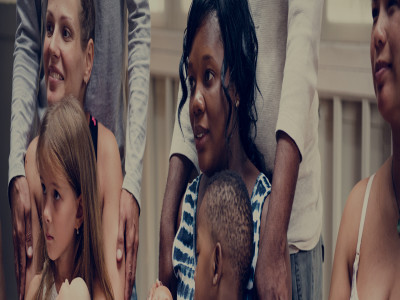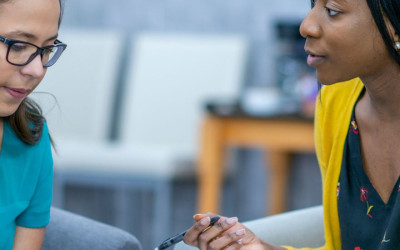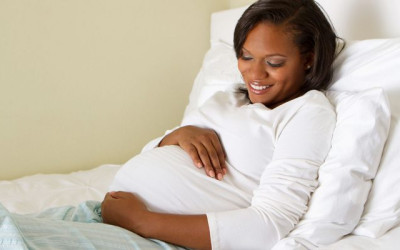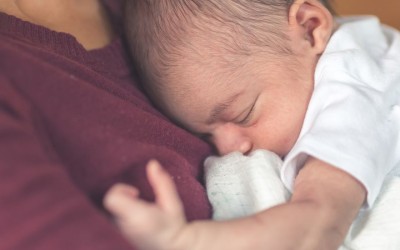
5 Tips for Coping with Grief at the Holidays
For those who have experienced the loss of their expected pregnancy experience, the end-of-year holiday season can be a time of grieving. Grief can manifest as anger, sadness, irritability, frustration, or even avoidance and "checking out" of normal behaviors or traditions. It may also show up as a sudden emotional reaction to something in your social media feed or that you view in your world. As human beings, we picture the way that we expect things to be. Unfortunately, preeclampsia and HELLP syndrome can often rob us of that picture.
Grief and loss experts note that feelings of disappointment at the holidays are very normal when you've experienced the loss of a loved one, or a traumatic experience.
“Grief is the natural response to being aware of a loss and, during the holidays, you are going to be more aware because we carry out all the rituals we’ve always done with the people we’re close to,” explained Mary-Frances O’Connor, associate professor at the University of Arizona, and author of “The Grieving Brain.”
While it is impossible to avoid everything that may create reminders or additional grief, there are some ways that you can protect yourself and set healthy boundaries:
- Check in with yourself (and your partner). It may feel difficult to confront your grief head-on. But the best first step is to ask yourself "how am I feeling in this moment?" Awareness of your emotional state can help you to set healthy boundaries for what you are able to do. It can also help you know when the feeling is more than just temporary sadness.* You are also perfectly within your right to take a break and breathe when your feelings are overwhelming. Try what’s called “Boxed Breathing,” in which you’ll breathe in for 4 seconds, hold for 4 seconds, breathe out for 4 seconds, hold for 4 seconds, and so on until you feel grounded. Another mindfulness technique is called the "5, 4, 3, 2, 1 exercise." Engage your senses by identifying 5 objects you see, 4 different sounds you hear, 3 textures you feel, 2 smells, and 1 taste. This can help you ground yourself in the present.
- Turn off social media for a bit. This may feel counterintuitive, since community is important when you are experiencing grief. However, psychologists have found that the comparative nature of social media sites can actually enhance grief. Seeing what appears to be others' "perfect" holiday experiences or even witnessing memories of your own past experiences may create unwanted grief. Social media usage does not have to be all-or-nothing: you may decide to create new temporary accounts for yourself, so that you can participate in grief support communities privately or simply be online without having to see or interact with people you know. You might also use social media filters to avoid certain terms that may expose you to reminders of your experience. As with suggestion one, check in with yourself and decide what is right for you in the moment.
- Make a plan for what existing holiday traditions you would like to do. If your holiday schedule is jam-packed, it can be hard to recharge and check in with your emotions. You may also run the risk of triggering your grief over and over again as each traditional event occurs. Talk with your family and make a plan that works for you. Maybe you decide just to attend one big event, like grandma's annual Hanukkah seder or your work Christmas party. Maybe it's selecting a couple smaller, lower-key events. Communicate that to your family and don't feel guilty when you stick to it. No one else is in your shoes! Boundaries have power, especially at the holidays.
- Make a new tradition. The loss of your expected experience or the death of a loved one can make certain rituals bittersweet, reminding us that life is fragile. If old traditions are too hard, create new ones. Your holiday celebration is yours - it does not need to fit anyone else's images of the "perfect" celebration (because there is no such thing!). A quiet holiday can be extremely healing. You may decide to light a candle, select a special ornament or decoration, hold a small ceremony, or add something else to your traditions that honors your experience and/or remembers your loved one.
- Seek out and hold tight to authentic connection. The antidote for loss is togetherness. You are not alone. Our community is comprised of so many families who have been where you are. Consider finding an in-person or Facebook support group (we include a number of recommendations on our Birth Trauma Resources page). Reach out to a compassionate family member or friend who understands what it means to "sit with you" in your grief. (We have a number of recommendations for loved ones on what NOT to say to a grieving parent.) Talk with your partner about their feelings. Seek out medical expertise when needed.
*If you are feeling overwhelmed, depressed, and unable to function, please seek professional help. Please use the information on our Birth Trauma Resources page to seek out professional support who understands birth trauma and/or perinatal loss. You can also contact the U.S. Health and Human Services Department’s Health Resources and Services Administration (HRSA) Maternal Mental Health Hotline, a confidential, toll-free hotline for expecting and new moms experiencing mental health challenges. The hotline is accessible by phone or text at 1-833-TLC-MAMA (1-833-852-6262) in English and Spanish. The Maternal Mental Health Hotline is not intended as an emergency response line and individuals in behavioral health crisis should continue to contact the National Suicide Prevention Lifeline at 1-800-273-TALK (8255).
It is completely normal to feel grief during the holidays, even if you experienced non-death loss, such as the loss of your expected pregnancy or postpartum experience. Grief can happen or continue even years after the experience. Remember, grief isn't linear. During times like the holidays, emotions are already running high so it is normal for grief or sadness to come up as well. It is important to take care of yourself all year, but especially during the holiday season. Warm wishes for a peaceful holiday season.
This original article was published in December 2022; updated with new HRSA hotline number in March 2024.
Related Articles

Doulas can help bridge the gap for any mom, but especially those most vulnerable to maternal illness and death.

Stories of our brave women and families who have been affected by preeclampsia and HELLP syndrome. Please note that due to a technical issue, we are currently fixing the images on this page.

What is Preeclampsia? Preeclampsia is a hypertensive disorder that occurs only during pregnancy and the postpartum period and affects both the mother and the unborn baby. Affecting at least...

Birth Trauma Resources Between 25 and 34 percent of women report that their births were traumatic. A traumatic birth experience is defined by circumstances in which the individual patient bel...

Shattered Expectations: What happens after the unexpected? You may have received the unexpected news that you have preeclampsia or another hypertensive disorder of pregnancy. Maybe labor complic...

Even after more than twenty years, Mavis “Mae” Stephens, a 3x preeclampsia survivor, vividly remembers the challenges she faced during her pregnancy with her second son. She did everything...

Recientemente, me encontré con una publicación en las redes sociales señalando la crisis de salud maternal desde la perspectiva de una mujer negra. Una persona respondió a...

Meghan Markle is opening up about her experience with postpartum preeclampsia in the debut episode of her new podcast, Confessions of a Female Founder. In the episode with her first guest and clo...
1732072344.png)
While the Preeclampsia Foundation has been championing patient advocacy and representation for all families affected by hypertension in pregnancy throughout our 25 year history, we recognized the uniq...

